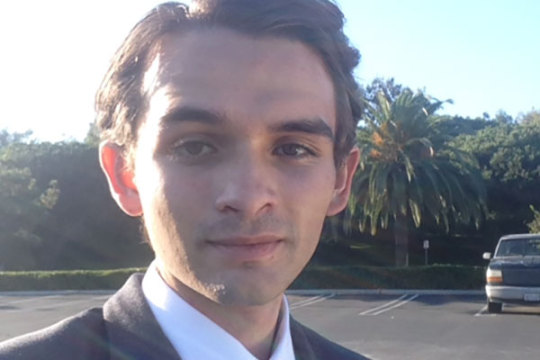
Candidate campaign page: https://www.votejustinclark.com/
Justin Clark’s statement to Bike The Vote L.A. offers commitments to provide dedicated funding for active transportation and to clarify the right of people on bikes under traffic code. However, his opposition to SB-1 (the long-overdue state gas tax enacted to fund repairs to California roads caused by drivers) shows that he does not currently have a platform focused on providing a safer and more equitable transportation system.
Bike The Vote L.A. 2018 Primary Grade: C+
(See below for full candidate questionnaire response)
1. The California Air Resources Board estimates that transportation accounts for 37% of California’s annual carbon emissions. What actions would you take as assemblymember to ensure that California creates a more sustainable transportation system?
As a member of the assembly I will work alongside local municipalities to come up with innovative solutions to this problem. One part of the solution is working with community members and professionals to come up with new ideas, the other is speeding up the timeline for already approved projects (such as the electrification of the orange line). I also support subsiding industries advancing technologies towards zero emission vehicles. As that technology advances it will more affordable and practical to integrate seamlessly into out transportation system.
2. Cap & trade funds offer a unique opportunity to prioritize sustainable transportation, particularly in low-income neighborhoods negatively affected by pollution caused by cars. Do you support dedicating a portion of cap and trade funds towards the Active Transportation Program to help fund better pedestrian and bicycle infrastructure?
Yes. I also plan introducing measures to increase government transparency and accountability that will offer ways for citizens to easier track the money, and add checks in place for when politicians promise that money will be going to a certain project.
3. In Los Angeles, low-income communities of color are disproportionately burdened by the impacts of streets designed primarily for cars, without receiving proportional funding for their mobility modes like walking, biking, and public transit. Would you support legislation to add a ‘complete streets’ policy to SB 1, California’s newly augmented gas tax, to require all street and highway projects to incorporate the needs of pedestrians, bicyclists and transit-dependent communities?
While this question presents a valid problem I cannot say I support its solution. SB directly hurts low income individuals by increasing gas prices when we already have the second highest gas in the country. In a state going through never growing housing and cost of living crisis SB 1 was a slap in the face of middle and working class Californians. The legislature can find the funding for infrastructure in other ways. I support the immediate repeal of the gas tax.
4. California law regarding the position bicyclists can occupy in a traffic lane is written in a confusing manner. The typical condition – in which the rightmost lane is too narrow for a car and a bicycle to travel safely side-by-side and the bicyclist is thus allowed to use the full lane – is written as an exception rather than the default standard. As a result, despite public information campaigns such as “Every Lane Is A Bike Lane,” there is frequently confusion from the general public and even law enforcement agencies on the legality of bicyclists riding in traffic lanes on California roads. Do you support re-wording traffic law to clarify the right of people on bikes to ride to maximize their visibility and safety?
Absolutely. Something like that should not even be an issue, and the fact it has not been fixed sooner shows one of the many problems of our legislature.
5. A recent study by the National Transportation Safety Board found that speeding was one of the most common factors in crashes, and one of the highest contributors towards fatal crashes. Despite this fact, speed limits across California are consistently raised due to a state law that sets speed limits at the 85th percentile of measured driving speeds. Do you support reform to the 85th percentile rule to give local jurisdictions the ability to set speed limits to better promote safe driving?
So long as the technology worked as intended I would support removing the law that allows this to be implemented in California. That said the choice to use automated speed enforcement is then up to local municipalities.
6. California’s ongoing housing crisis challenges cities and communities to provide solutions towards meeting California’s demand for housing. Do you support efforts at the state level to accommodate smart growth, transit-oriented development, and sustainable communities that empower residents to get around on foot, by bike, and on quality public transit? What specific policies you would pursue to promote sustainable and affordable living for Californians?
Affordable housing near highly used transit is one of the pillars that should be used in addressing the housing crisis because it enables those that would actually use public transportation. I would support similar measures so long as they are aimed at the housing crisis. I am not a fan of grouping issues and adding riders to a bill. It kills solutions, spreads disinformation about why a member voted a certain way, and takes advantage of assembly/senate rules.
In regards to construction. State projects, especially those done by Cal Trans, have a reputation of being sloppy and slow. That needs to change. Communities deserve well planned and efficiently executed projects. If elected I will be pushing an independent an audit of ALL California departments.
